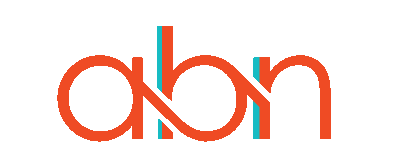As the job market continues to become increasingly competitive, it’s important to enhance your job skills in order to stay relevant and advance your career. Many people are deterred by the high cost of professional development, but it doesn’t have to break the bank. Here are five ways to upskill yourself on a tight budget.
1. Take Advantage of Free Online Resources
An advantage of the internet is the wide variety of free educational resources available at your fingertips. From online courses to webinars and tutorials, there are countless resources you can use to learn new skills without spending a dime.
Some of the most popular online learning platforms include:
- Coursera and edX: Offer courses from universities and institutions worldwide on a variety of topics. While some courses are paid, many are available for free if you don’t require a certification. How they help: Gain knowledge from top universities and industry leaders.
- Khan Academy: Known for its comprehensive and easy-to-understand tutorials in mathematics, science, and programming. How they help: Build foundational knowledge in technical subjects.
- Codecademy and FreeCodeCamp: Ideal for learning coding and web development skills. How they help: Interactive platforms to learn and practice coding.
- YouTube Educational Channels: Channels like CrashCourse and MIT OpenCourseWare offer free lectures and educational content. You can subscribe to channels that provide free educational videos on various topics or follow influencers in your industry to stay up-to-date with the latest trends and best practices. How they help: Access to diverse educational content and expert lectures at no cost.
- Duolingo: Great for learning new languages, it’s designed to make it fun, accessible and effective. How they help: Enhance language skills through interactive lessons and exercises.
- LinkedIn Learning Free Courses: Occasionally offers free courses in business, technology, and creative skills. How they help: Learn industry-relevant skills and stay updated with trends.
2. Put Your Library Card to Good Use
Utilizing the public library to enhance your job skills is a smart and cost-effective strategy. Here’s how you can make the most of this valuable resource:
- Access to a Wide Range of Books: Libraries offer a plethora of books and e-books covering various fields and skills. Whether you’re looking to improve your technical knowledge, leadership skills, or learn about new industries, you’ll find relevant books.
- Online Resources and Databases: Many libraries provide access to specialized online databases, journals, and e-learning platforms that might otherwise be expensive. These resources can be particularly valuable for staying up-to-date with the latest trends and research in your field.
- Library Workshops and Seminars: Check out the library’s events calendar. Libraries often host workshops, seminars, and talks by industry experts and professionals. These events are great opportunities to learn new skills and network with others.
- Learn New Technologies: Public libraries often have access to various software and technologies. This can be especially beneficial if you need to familiarize yourself with certain tools for your job but don’t have access to them otherwise.
- Career Counseling Services: Some libraries offer career counseling services, résumé workshops, and interview preparation help.
3. Attend Free Webinars and Events
Webinars and events have become indispensable tools for upskilling in today’s fast-paced professional landscape.
Webinars
One of the key advantages of webinars is their accessibility. Unlike traditional in-person seminars, webinars can be attended from anywhere in the world, eliminating geographical barriers. This means you have the ability to learn from experts and industry leaders that you may not have otherwise had access to. Webinars offer a fantastic opportunity to learn from the pros without having to leave your home
Many organizations and companies offer these webinars at a minimal cost–or even free. They may cover a variety of topics, from entrepreneurship and career development to digital literacy and social media basics. These can provide valuable insights and strategies to help you improve your skills and knowledge.
Events
Events may offer the same type of industry expert advice and upskilling capabilities as webinars. But beyond the educational aspect, events also offer networking opportunities. You’ll hear from and converse with successful business leaders and entrepreneurs, which can help you gain insights and advice that can help you take your career to the next level. Plus, the networking aspect of these events will help you make connections that could lead to future job opportunities.
4. Volunteer for Skills-Based Projects
Volunteering for skills-based projects can be a win-win situation for both you and the organization you’re volunteering for. You can gain valuable experience and develop new skills while also making a positive impact in your community. The benefits include:
- Practical Experience: Skills-based volunteering allows you to apply your knowledge in real-world settings, and helps you understand the practical applications of your skills while deepening your expertise.
- Learning New Skills: When volunteering, you often encounter tasks or challenges outside your usual skill set, thus pushing you to learn and adapt.
- Networking Opportunities: Volunteering connects you with professionals and organizations in your field of interest, which can be beneficial for future job opportunities, mentorship, or collaborative projects.
- Enhancing Your Résumé: Involvement in volunteer projects demonstrates initiative and a commitment to personal growth and community service. This can be appealing to potential employers, as it showcases your ability to take on new challenges and your dedication to continuous learning.
- Personal Development: Beyond professional skills, volunteering helps in developing soft skills like teamwork, communication, problem-solving, and leadership. These skills are crucial in any professional setting and can greatly enhance your employability and effectiveness in your role.
- Exposure to Diverse Perspectives: Working on volunteer projects often brings you into contact with people from various backgrounds and with different skill sets. This exposure can provide new insights, foster creativity, and enhance your ability to work in diverse teams.
Look for volunteer opportunities that align with your interests and skills. For example, if you’re interested in marketing, look for opportunities to help a local nonprofit with its social media or advertising campaigns.
5. Network with Other Professionals
Networking with other professionals in your field can be a powerful way to upskill yourself and stay up to date with the latest trends and best practices. A few ideas for networking:
- Join Online Forums and Social Media Groups: Look for industry-specific opportunities on LinkedIn, Reddit, Facebook, and X that allow you to connect with peers and experts.
- Alumni Networks: Leverage your alumni network for connections and mentorship opportunities.
- Start a Professional Blog or Podcast: Share your knowledge and insights in your field to attract a network of professionals with similar interests.
- Join Professional Associations: Many professional groups offer free or discounted memberships for students or young professionals.
- Engage in Local Community Groups or Clubs: These can offer unexpected networking opportunities in a more relaxed setting.
Each of these methods can help you build a professional network, learn from others, and find opportunities for collaboration and growth, all while keeping expenses minimal.
Conclusion
Upskilling yourself on a tight budget is not only possible but can also be an enjoyable and fulfilling experience. By taking advantage of online and community resources, attending webinars and events, volunteering, and networking, you can inexpensively better your skillsets and set yourself up for professional success.

